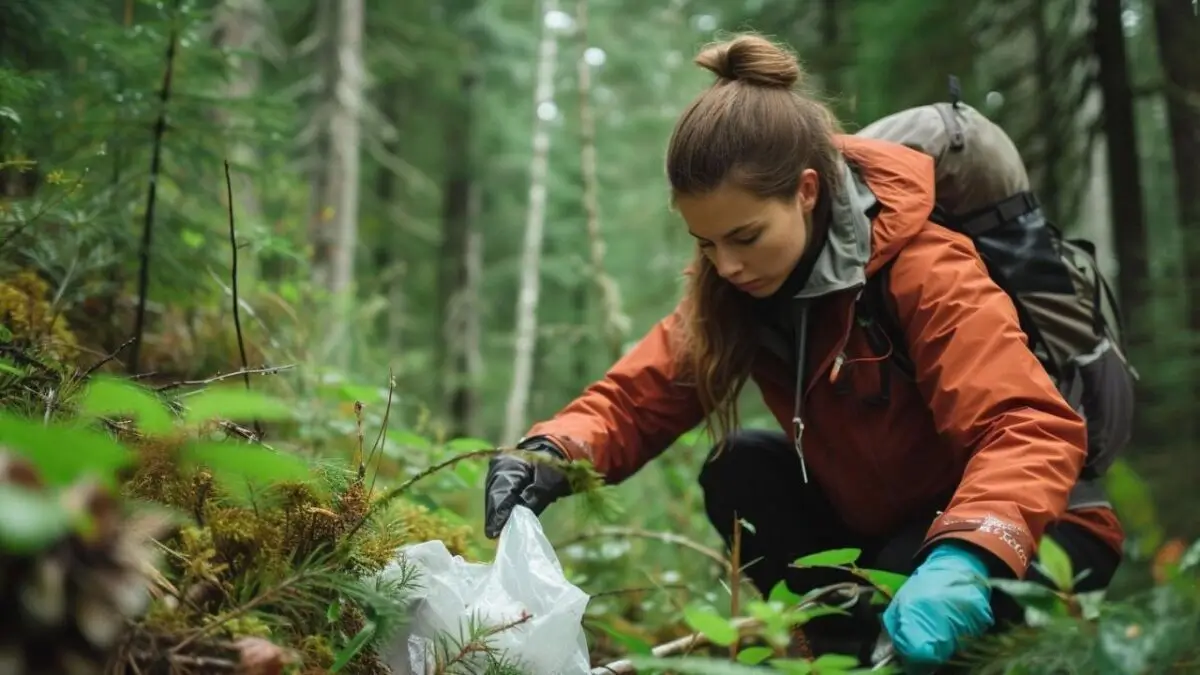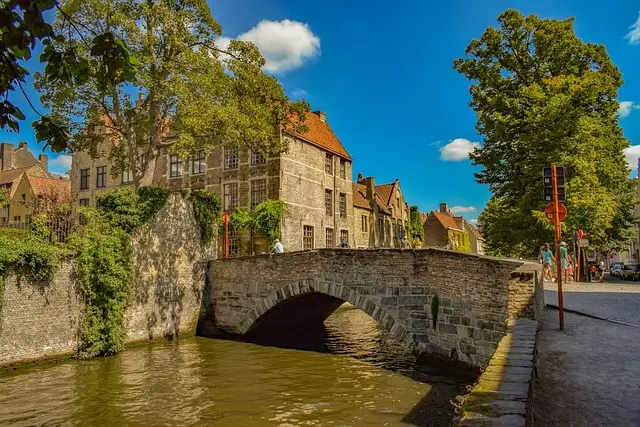Sustainable Travel: How to Explore the World Responsibly
 Sustainable Travel
Sustainable TravelDo you have a picture in your collection standing at a pristine beach that was Instagram famous just 5 years ago, but now you are dodging plastic bottles instead of taking photos? Yes, that's the reality so many travelers experience today.
Do you remember when travelling used to mean just packing your bags and going? Those days are behind us. Millions of us cross borders each year, our footprints linger long after we leave, and not all of them are good.
But remember that being environmentally conscious doesn’t mean you have to give up your wanderlust. Imagine if you could visit that dreamy Greek island or trek through the Amazon while doing something to actually save them? Sustainable travel is where we come in.
In this guide, we’ll break down what it really means to travel sustainably. Not a word of greenwashing, or complicated jargon, just how you can explore the world and make sure it stays beautiful to explore for your kids in the future
What Does Sustainability Really Mean in Travel?
So let’s cut through the buzzwords and get real about sustainable travel. You've probably heard 'eco-friendly' and 'responsible tourism'. So here’s what that really means for you, the traveler.
Sustainable travel can be thought of as a good guest, the kind who gets invited back. It’s about exploring and leaving it better than you found it. In other words, you avoid international chain hotels and restaurants in favour of family run guesthouses and eateries, and you maybe even forsake the elephant ride in favour of a guided nature walk.
Goodbye to the myth of sustainable travel being limited to sleeping in bamboo huts or emptying your wallet on expensive eco resorts. There is responsible travel on any budget. It is about your choices, small and big and how they create a ripple effect on the people and places you visit.
How Sustainable Travel Impacts the Planet and People
Have you ever thought about how your travel decisions affect the world? Here's how sustainable travel creates waves of positive change:
Carbon Footprint Reduction:
Switching to a train instead of a short haul flight can reduce your journey's carbon emissions by up to 90%.
Surely with fewer planes in the sky everyone has cleaner air. If you choose low carbon transport, you’re actually helping the planet breathe a little easier.
Wildlife Protection:
But you’re voting with your wallet by choosing ethical wildlife tours and saying no to exploitative animal attractions. If tourists stop visiting places that harm animals, these businesses either change or they go out of business. Travelers have demanded better and they have seen former elephant riding camps turn into ethical sanctuaries.
Local Economic Growth:
Eating at the street food stall, or booking that family run guest house is putting money directly into local pockets. Like you stay at a community homestay in Thailand, where your payment went to the village school. These are small choices which present real opportunities for local communities.
Cultural Preservation:
If you purchase traditional crafts or take part in authentic cultural experiences you keep ancient traditions alive. When travelers are interested in and respectful of a community’s heritage, communities can see that it is valuable to preserve it. Your curiosity and support help ensure these traditions will go on to the next generation.
5 Ways You Can Travel Sustainably
Are you ready to become a more conscious traveller? This article will break down five practical ways to make your adventures more sustainable. These aren't just good tips, they’re game changers that really work in the real world.
Pick Greener Transportation Alternatives
 Greener Transportation Alternatives
Greener Transportation AlternativesDo you recall that epic train journey through the Swiss Alps you took this summer? Besides slitting carbon footprint, the views were far better than airplane clouds. Trains emit 75% less carbon than planes and the journey is part of your adventure.
If you can’t avoid flying, book direct flights. Because each takeoff consumes such a gigantic amount of fuel, one direct flight uses less fuel than a series of stops.
Do you know the same journey by train only produces 22kg, whereas a London to Paris flight generates 244 kg of CO2 per passenger. Take a bike or use public transport for exploring the city, you’ll see more of local life and save money at the same time.
Pack Light and Smart
 Pack Light and Smart
Pack Light and SmartDo you also feel it is harder to carry unnecessary bags and luggage or don't want that extra pair of shoes. Lighter bags mean planes burn less fuel, every kilo matters.
Many of you travelled long with huge bags and probably hadn't used some of the carried clothes even once. Try to pack multi-purpose items and eco-friendly essentials as it is also very helpful.
For example, taking a reusable water bottle would save you hundreds on bottled water, bamboo utensils saying goodbye plastic forks, and reef safe sunscreen because regular sunscreen kills coral reefs. Think about solid shampoo bars and toothpaste tablets as they are lighter, last longer and leave zero plastic waste.
Support Local Economies
 Support Local Economies
Support Local EconomiesDon’t check into the international hotel chains, instead immerse yourself in local life. The one in that family runs a B & B in Tuscany? By staying with them you help send the children to school. It’s that street food vendor in Bangkok. Your purchase endorses generations of culinary tradition.
Look for locally owned tour guides, souvenir shops and so on. Purchase handicrafts directly from the artisans who make them, you will find authentic items at better prices and with amazing stories to share. It’s when tourist dollars stay in local hands that communities thrive and protect their special character.
Respect Local Cultures and Customs
 Respect Local Cultures and Customs
Respect Local Cultures and CustomsRespectful travel isn't rocket science, but it’s a world changer. Learn a little about local customs before you arrive, covering your shoulders or taking your shoes off shows respect and opens you up to real connections.
Don't stay in tourist places. Instead of everyone going to Venice St Mark's Square, you could explore nearby charming towns like Burano, or Chioggia. Learn a few local phrases, even basic greetings will change the way locals receive you. They always ask before they take pictures of people or religious sites.
Leave No Trace: Protect Natural Environments
 Leave No Trace: Protect Natural Environments
Leave No Trace: Protect Natural EnvironmentsNever has the old saying "take only pictures, leave only footprints" been more important. Before that beach cleanup photo, think twice. Did you help or just grab a quick shot? Consistent and mindful actions create actual impact.
Check out reusable bags for shopping and trash. Staying on the marked trails those Instagram-worthy "hidden" spots can destroy fragile ecosystems. When camping or hiking, leave what you wish to see, and pack out what you pack in. And please, don't feed wild animals as it messes with their normal behavior and may even cause them to depend on humans.
Common Myths About Sustainable Travel Debunked
Here are the 9 myths that are keeping you from traveling sustainably. You've probably heard these all before, but we are here to tell you they're flat out wrong.
- "Sustainable travel is a fortune." Nope, not true. It’s often cheaper than traditional tourism. The use of taxis is cheaper than taking public transport. Tourist restaurants are beaten in both price and taste by local markets. That family-run guesthouse? They are half the price of chain hotels.
- "It's just for hardcore environmentalists," he said. Wrong again. Traveling responsibly doesn’t mean you need to be a zero waste guru or vegan activist. Small choices make a difference and that includes refusing plastic straws, carrying a reusable water bottle, and choosing local guides. It's that simple.
- "Sacrificing comfort is sustainable travel." Please! People prefer to stay at eco lodges and some of them have been some of their most luxurious stays. Generally speaking, modern sustainable accommodations are trend setters in providing innovative comfort solutions such as solar heated infinity pools and organic locally sourced spa treatments.
- "It's too complicated." In fact, it’s simpler than you might imagine. Start small. Choose one sustainable thing per trip. It won’t be long before responsible travel is second nature.
Conclusion: Travel Responsibly, Explore Freely
Remember that feeling of finding your first hidden local cafe or making friends with a village elder, even though you couldn't understand each other? Sustainable travel is giving you real, raw, unforgettable moments that mass tourism just can’t compete with.
Begin your sustainable life with baby steps. Why not swap one flight for a scenic train ride? Or, if you don't want to stay at a chain, consider a family run hotel. Every little choice sends waves that lead to positive change.
But there are real people and real communities and real ecosystems at these places of wonder in the world. When you travel mindfully, you don’t lose anything. Instead you’re living richer experiences, while also preserving these magical places for future wanderers.
Are you ready to explore differently? It’s your next adventure and this time it can be one you can make a difference in.






